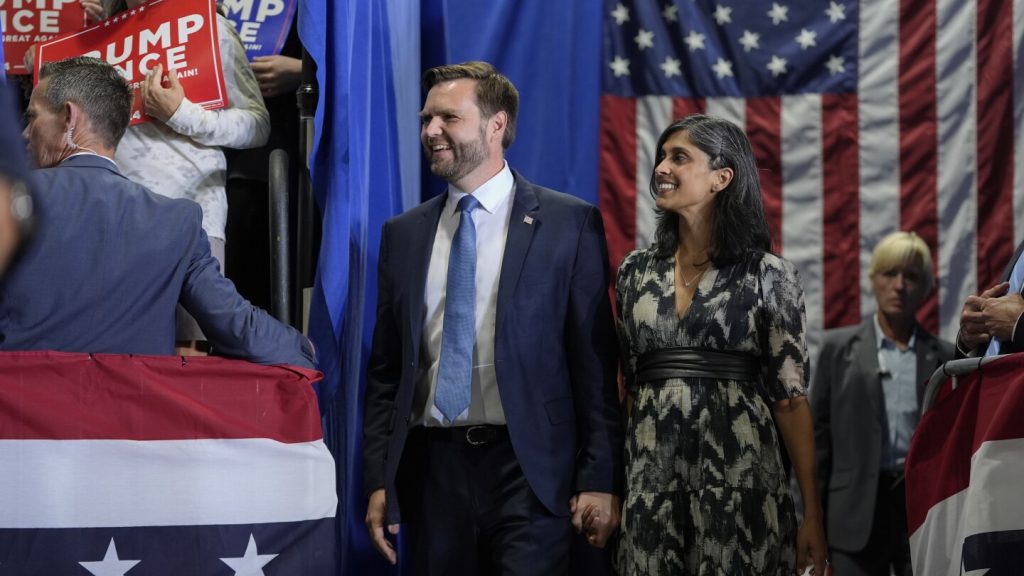JD Vance, an Ohio senator and rising star in Republican politics, has been embracing conspiracy theories in recent years, including claims that the federal government deliberately allowed fentanyl into the United States to kill conservative and rural voters. He has also praised conspiracy theorist Alex Jones and echoed baseless claims made by former President Donald Trump about the 2020 election. Vance’s shift towards conspiracy theories has been seen as a strategic move to align himself with Trump’s Republican Party, which has a history of promoting unfounded claims. By embracing these theories, Vance appears to be catering to a base that is increasingly drawn to such ideas.
Contrary to popular belief, denying conspiracy theories is not seen as a recipe for electoral success in today’s political climate. Individuals like Mike Pence and Liz Cheney, who have refused to embrace such ideas, have faced backlash from Trump and his allies. Pence’s refusal to overturn the 2020 election results led to his downfall in the 2024 GOP presidential primary, while Cheney lost her leadership role in Congress and her House seat after investigating Trump’s role in the Capitol insurrection. Vance and his campaign have defended his conspiracy theories, suggesting that they have been misrepresented by Democrats. Vance believes that promoting these theories will bring attention to certain issues, even if they are false or misleading.
JD Vance’s transformation from a respected intellectual to a conspiracy theorist has shocked many who knew him before his entry into politics. His best-selling memoir, “Hillbilly Elegy,” portrayed him as a thoughtful observer of rural America and its challenges. However, Vance’s shift towards conspiracy theories began after he announced his candidacy for the U.S. Senate in 2021. He has defended controversial figures like Alex Jones and questioned the seriousness of the January 6th insurrection at the Capitol. Vance’s willingness to embrace conspiracy theories reflects a broader trend within the Republican Party, where such ideas are increasingly seen as acceptable and even necessary for political success.
Vance’s promotion of conspiracy theories, including those surrounding the 2020 election and immigration issues, has raised concerns about the normalization of dangerous rhetoric within mainstream politics. By invoking figures like George Soros and promoting the “great replacement theory,” Vance is touching on themes that have historically led to violence and discrimination. While Vance’s campaign emphasizes his personal background, including his biracial children and immigrant wife, critics argue that his rhetoric can still contribute to the spread of harmful stereotypes and beliefs. The increasing acceptance of such conspiracies in political discourse is seen as a troubling trend that could have serious consequences.
In today’s political landscape, the embrace of conspiracy theories has become a strategic maneuver for many politicians seeking to appeal to a certain base or align themselves with influential figures like Donald Trump. JD Vance’s evolution from a critic of conspiracy theories to a promoter of them reflects the changing dynamics within the Republican Party and conservative politics in general. While Vance and his campaign defend his embrace of these ideas as a way to draw attention to important issues, critics warn that such rhetoric can inflame tensions, promote violence, and perpetuate harmful stereotypes. As conspiracy theories become increasingly mainstreamed, the need for critical thinking and responsible leadership in politics is more important than ever.


